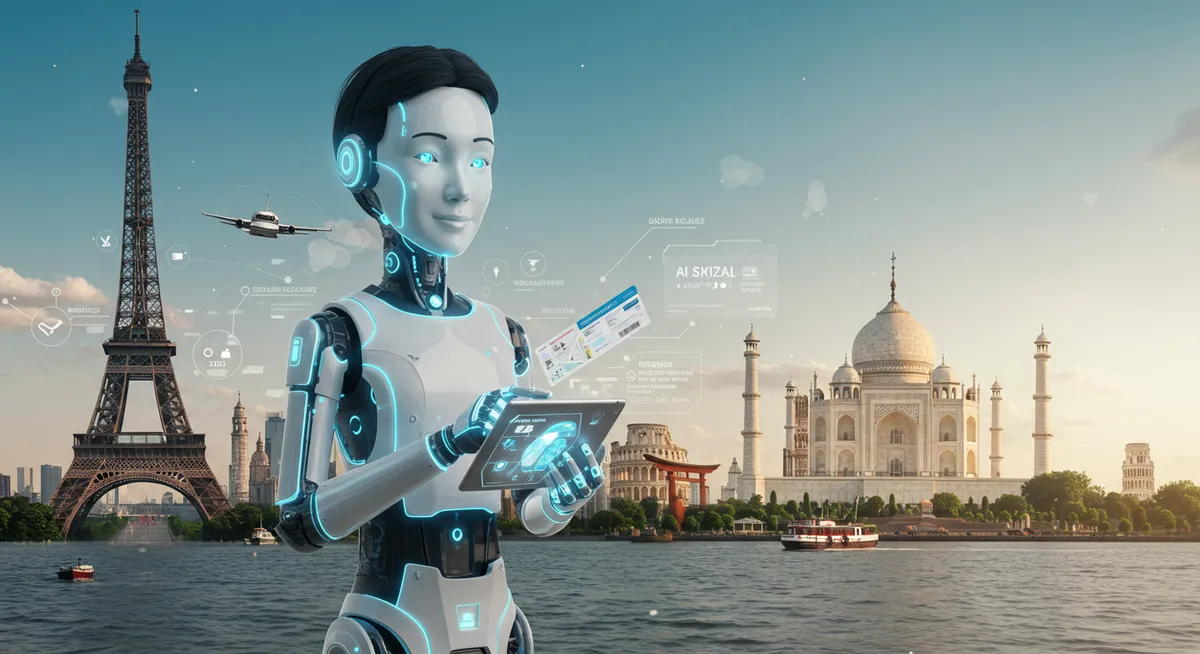
10 Ways AI Travel Assistants Are Revolutionizing How We Travel
Table of Contents
Want to find the best travel deals for this destination? Chat with our travel hacking specialist!
Get Travel HacksCategory: ai-travel-assistant
10 Ways AI Travel Assistants Are Revolutionizing How We Travel
Artificial intelligence is fundamentally changing the travel industry, transforming everything from how we research destinations to how we book accommodations and navigate unfamiliar cities. AI travel assistants combine vast amounts of data with machine learning to deliver personalized recommendations, uncover hidden deals, and solve travel problems in real-time. In this article, we explore the ten most impactful ways that AI travel assistants are enhancing the travel experience, helping you save time, money, and stress while discovering opportunities that would be nearly impossible to find manually.
Personalized Travel Planning and Discovery
The first set of AI capabilities focuses on how intelligent algorithms are transforming the travel planning process, delivering tailored recommendations and uncovering destinations you might never have considered.
1. Hyper-Personalized Destination Recommendations
Traditional travel planning typically starts with a destination in mind. AI travel assistants flip this model by analyzing your preferences, past travel history, budget constraints, and even social media activity to suggest destinations you might never have considered. These systems can identify emerging travel trends and off-the-beaten-path locations that match your specific interests, whether that's architecture, culinary experiences, outdoor adventures, or cultural immersion. Rather than generic recommendations, AI considers factors like your preferred climate, crowd tolerance, and activity level to suggest locations that genuinely align with your personal travel style. This capability is particularly valuable for travelers experiencing "destination fatigue" with popular locations or those seeking authentic experiences away from overtourism.
Pro Tip: For the most accurate AI destination recommendations, create a comprehensive traveler profile in your chosen AI travel assistant. The more information you provide about your preferences, the more tailored the suggestions will be.
2. Dynamic Itinerary Generation and Optimization
Gone are the days of rigid, one-size-fits-all itineraries. AI travel assistants can generate customized day-by-day travel plans that balance your must-see attractions with your preferred pace of travel. These systems consider opening hours, predicted crowd levels, proximity between sites, and even weather forecasts to create logistically optimized routes. As your trip progresses, the AI can dynamically adjust your itinerary based on real-time factors: if you spend longer than expected at a museum, it recalculates the rest of your day; if unexpected rain appears, it suggests indoor alternatives. Some advanced platforms even incorporate biometric data from wearable devices to detect fatigue and recommend rest periods or less strenuous activities, ensuring you don't experience the burnout that comes from overscheduled travel days.
3. Visual Recognition for Travel Inspiration
AI-powered visual recognition is transforming how travelers discover new destinations. By analyzing images you've engaged with or saved on platforms like Instagram and Pinterest, AI assistants can identify visual patterns in your preferences—architectural styles, landscape features, or urban aesthetics that appeal to you. These systems can then recommend destinations with similar visual characteristics but perhaps lower costs or fewer tourists. Some cutting-edge applications allow you to upload a photo of a place that caught your interest, and the AI will identify the location and suggest similar destinations worldwide. This capability helps travelers discover places based on emotional and aesthetic appeal rather than just conventional categories, leading to more personally resonant travel experiences.
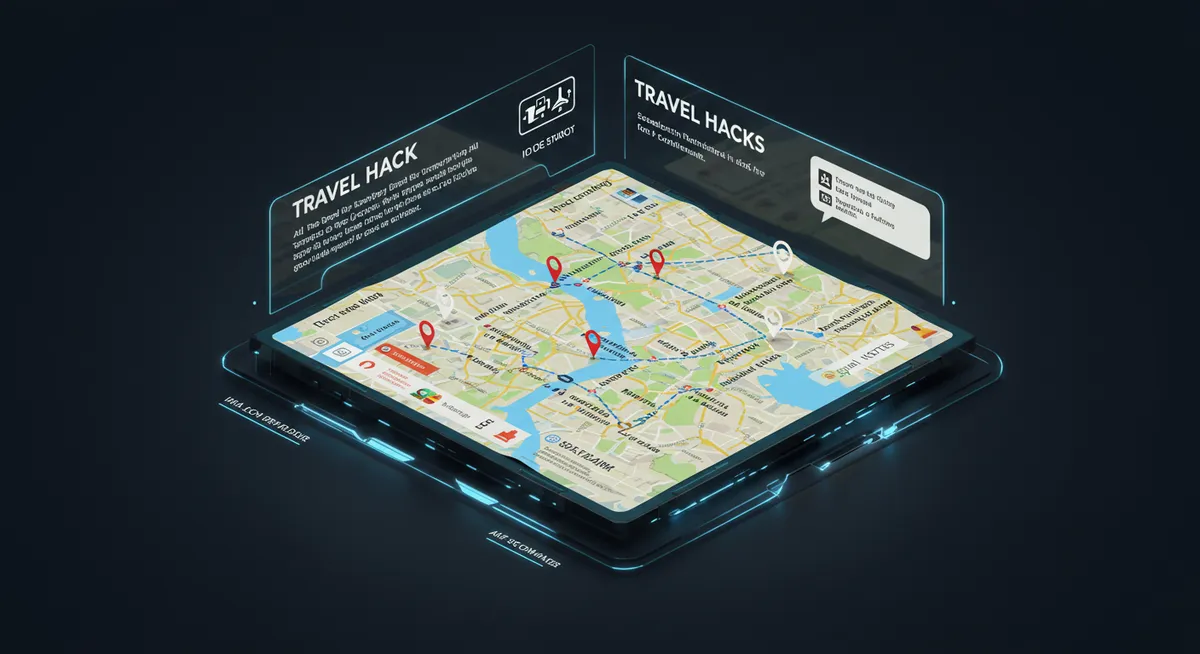
Intelligent Price Prediction and Booking
The next set of AI capabilities focuses on how machine learning algorithms are helping travelers secure optimal prices and timing for flights, accommodations, and activities.
4. Predictive Pricing for Strategic Booking
AI-powered price prediction tools have revolutionized the timing of travel purchases. These systems analyze billions of historical fare data points, current market trends, seat availability, competitive pricing, and seasonal patterns to forecast price movements with remarkable accuracy. Advanced algorithms can now predict not just whether prices will rise or fall, but by approximately how much and within what timeframe, giving travelers actionable intelligence for booking decisions. Some platforms offer confidence scores with their predictions, indicating the statistical certainty of the forecast. The most sophisticated tools integrate external factors like major events, fuel prices, and even airline financial health into their models, providing comprehensive price trend analysis that was previously available only to industry insiders.
5. Hidden Deal Discovery Through Pattern Recognition
AI travel assistants excel at identifying pricing anomalies and obscure travel deals that human researchers would likely miss. These systems continuously monitor millions of routes, fare classes, and booking combinations to detect pricing errors, unadvertised sales, and optimal routing combinations. Advanced AI assistants can identify complex opportunities like hidden-city ticketing, where booking a flight with a connection and exiting at the layover city can be cheaper than a direct flight. They can also recognize "mistake fares" (erroneously priced tickets) almost instantly, allowing users to book before corrections are made. Some systems even analyze historical data to identify patterns in when specific airlines or hotels typically offer their best deals, enabling strategic timing of bookings beyond simple seasonal guidelines.
Important Note: While AI assistants can identify opportunities like hidden-city ticketing, users should understand the potential drawbacks, including inability to check bags, risk of ticket cancellation for repeated practice, and potential impacts on loyalty status.
6. Automated Rebooking and Price Monitoring
Once you've booked travel arrangements, AI assistants continue working to ensure you've secured the best possible price. These systems monitor your reservations against new price drops, promotional codes, and better room or seat availability. When advantageous opportunities arise, advanced assistants can automatically rebook you at the lower rate or superior option, handling all the cancellation and rebooking processes without requiring user intervention. Some services even monitor competitor prices and help you leverage best-rate guarantees with your existing bookings. For flights, sophisticated AI tools track aircraft changes and proactively suggest seat reassignments if your original selection is no longer optimal on the new plane configuration. This continuous post-booking optimization ensures travelers benefit from price improvements even after their initial purchase.
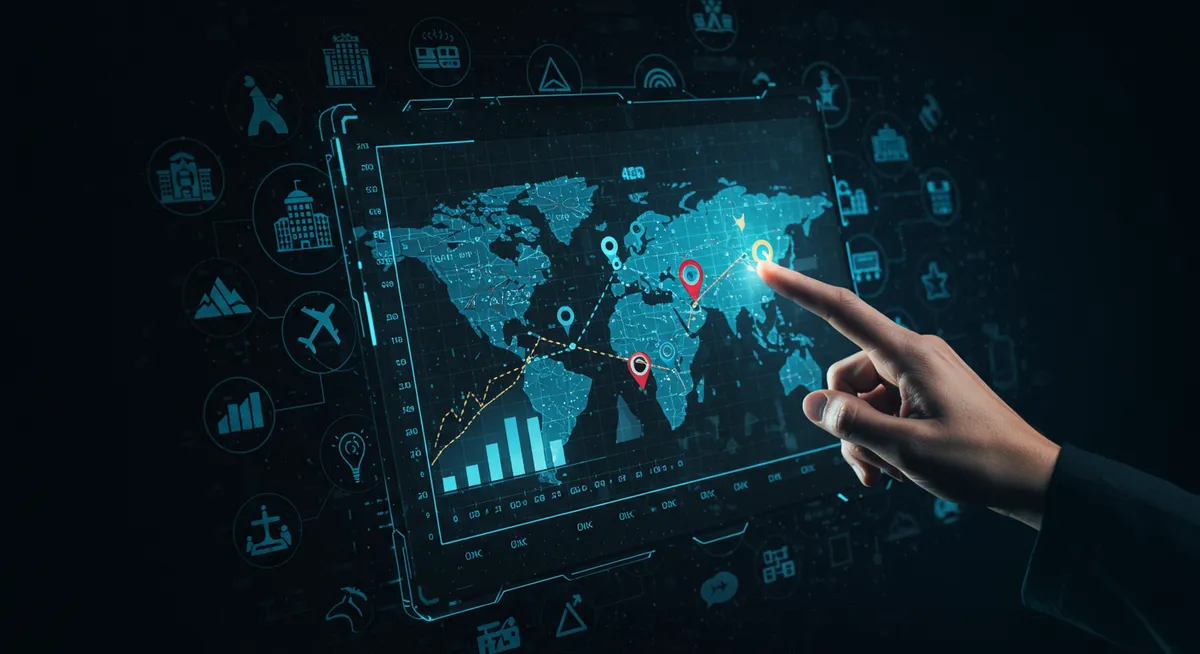
Enhanced Travel Experiences and Problem-Solving
The final set of AI capabilities focuses on how intelligent assistants are transforming the in-destination experience, from language barriers to real-time problem resolution.
7. Real-Time Language Translation and Cultural Insights
AI-powered translation tools have evolved far beyond simple text conversion, now offering contextual, conversational translations that account for cultural nuances and regional dialects. Advanced travel assistants can provide real-time audio translation through earbuds, allowing for natural conversations with locals without awkward pauses. These systems also offer cultural context alongside translations, explaining appropriate gestures, typical customs, or potential faux pas related to your conversation topic. Visual translation features can instantly convert foreign-language menus, signs, or documents through your smartphone camera, with some advanced systems preserving the original formatting and design while overlaying translated text. For travelers venturing to linguistically challenging destinations, these capabilities transform basic interactions into meaningful cultural exchanges.
8. Predictive Problem-Solving and Disruption Management
Perhaps the most valuable feature of AI travel assistants is their ability to anticipate problems before they occur and provide solutions when disruptions happen. Advanced systems monitor multiple data sources—weather patterns, air traffic delays, social media sentiment about transportation providers, and historical disruption data—to predict potential issues with remarkable accuracy. When problems do arise, AI assistants can instantaneously evaluate all available alternatives, considering factors like seat availability, connection feasibility, hotel vacancy, and even your personal preferences to suggest the optimal solution. During major travel disruptions like weather events or strikes, when human customer service is overwhelmed, AI assistants can secure alternative arrangements within seconds while other travelers wait in long queues or hold lines.
9. Dynamic Local Recommendations with Contextual Awareness
In-destination, AI assistants have evolved beyond static recommendations to offer contextually aware suggestions that account for real-time factors. These systems consider current weather conditions, time of day, your energy level, local events, crowd data at attractions, and even wait times at restaurants to recommend appropriate activities. Advanced platforms can detect patterns in your feedback to continually refine their understanding of your preferences, distinguishing between what you enjoy in different contexts—perhaps you prefer fine dining in urban settings but casual local eateries in coastal locations. Some cutting-edge assistants even incorporate augmented reality elements, overlaying information about your surroundings as you explore, highlighting architectural details, historical context, or hidden gems that might otherwise go unnoticed.
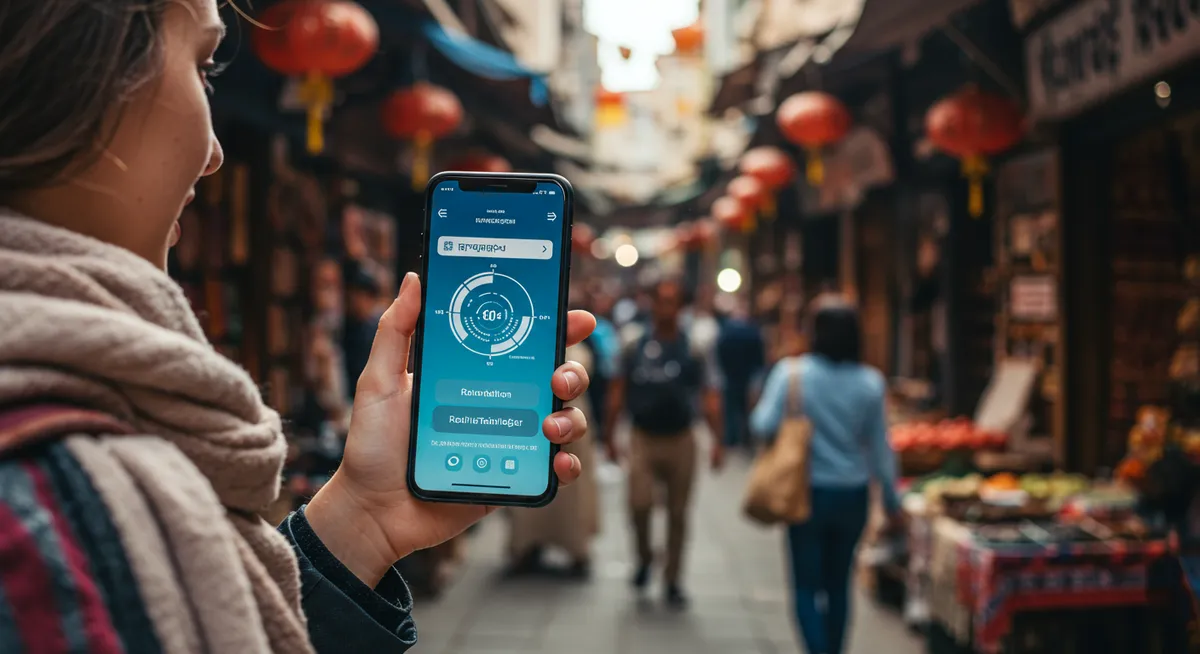
10. Personalized Sustainability Guidance
As travelers become increasingly concerned about their environmental impact, AI assistants are now incorporating sustainability metrics into their recommendations. Advanced systems can calculate the carbon footprint of different transportation options, accommodations, and activities, allowing environmentally conscious travelers to make informed choices. These platforms can identify eco-certified accommodations, locally-owned businesses, and low-impact activities that align with both your preferences and sustainability goals. Some cutting-edge assistants offer personalized sustainability insights, highlighting how your choices compare to average travelers and suggesting incremental improvements that won't detract from your experience. For destinations facing overtourism, these systems can recommend alternative times or similar nearby locations that provide comparable experiences with less environmental and cultural strain.
Frequently Asked Questions About AI Travel Assistants
How accurate are AI flight price predictions, and how far in advance should I trust them?
The accuracy of AI flight price predictions varies based on route popularity, time horizon, and external factors, but leading platforms now achieve 70-85% accuracy for predictions up to 6 months out, with accuracy improving significantly for shorter timeframes (85-95% for 1-2 month predictions). These systems perform best on popular routes with abundant historical data and relatively stable demand patterns. For major international routes, predictions 3-6 months out provide useful directional guidance, while 1-2 month predictions offer actionable booking advice. For less-traveled routes or during volatile periods (pandemic recovery, fuel price spikes, major geopolitical events), prediction accuracy decreases and typically includes wider confidence intervals. The most reliable AI prediction tools now provide transparency about their confidence levels, allowing users to weigh the statistical certainty alongside the prediction itself. When evaluating these tools, look for those that clearly state both their historical accuracy rates and confidence levels for specific predictions rather than making blanket claims about precision.
What personal data do AI travel assistants collect, and how is my privacy protected?
AI travel assistants typically collect extensive data to provide personalized recommendations, including search history, booking patterns, location data, feedback on suggestions, and sometimes demographic information or social media connections. Many advanced platforms request access to your calendar, email (to scan for travel confirmations), and occasionally photos (for visual preference analysis). This data collection enables the AI's personalization capabilities but raises legitimate privacy concerns. Reputable AI travel services employ several protection measures: data encryption both in transit and at rest, clear opt-in processes for sensitive data collection, granular privacy controls allowing users to limit specific types of data sharing, anonymization of personal data when used for algorithm training, and transparent data retention policies with options to delete historical information. When choosing an AI travel assistant, prioritize services that comply with regulations like GDPR or CCPA, provide detailed privacy statements explaining specific data uses, offer exportability of your personal data, and don't rely on selling user information as their primary business model. The most trustworthy platforms clearly distinguish between data required for core functionality versus enhanced personalization, allowing users to make informed choices about their privacy trade-offs.
How do AI travel assistants compare to traditional travel agents for complex or luxury trips?
The relationship between AI travel assistants and traditional agents is evolving toward complementary strengths rather than direct competition. AI systems excel at data processing, pattern recognition, and personalization at scale—analyzing millions of options instantly, identifying optimal flight routings or pricing anomalies, and maintaining perfect recall of your preferences across all interactions. Traditional agents offer irreplaceable human judgment, emotional intelligence, accountability during disruptions, and exclusive industry relationships developed over decades. For complex or luxury travel, the most effective approach combines both: AI systems can generate comprehensive options and handle logistical optimization, while human agents provide context-sensitive curation, negotiate special amenities, and offer reassurance for high-value bookings. Many premium travel agencies now employ this hybrid model, using AI tools to enhance their advisors' capabilities rather than replace them. The most sophisticated AI platforms recognize their limitations and seamlessly transition complex requests to human specialists when appropriate. For travelers planning significant luxury experiences, once-in-a-lifetime celebrations, or highly complex multi-destination itineraries, the ideal solution typically leverages AI's computational power while maintaining human oversight for critical decisions and relationship-based enhancements.
Can AI travel assistants effectively handle travel for people with accessibility needs or dietary restrictions?
AI travel assistants have made significant progress in accommodating accessibility needs and dietary restrictions, though capabilities vary widely between platforms. Leading systems now maintain detailed accessibility profiles that capture specific requirements—from wheelchair accessibility and ground floor room preferences to service animal accommodations and sensory sensitivities. For dietary needs, advanced platforms can identify dining options compatible with multiple overlapping restrictions (e.g., gluten-free vegetarian or halal low-sodium) and even suggest specific menu items at restaurants based on ingredient analysis. The most sophisticated assistants layer these specialized requirements onto their standard recommendations seamlessly, so users receive suggestions that simultaneously satisfy their accessibility needs, dietary restrictions, and general preferences without having to prioritize one over others. While AI systems excel at filtering massive datasets for compatible options, they still have limitations in understanding the nuanced reality of accessibility—photos may not accurately represent actual conditions, and "accessible" can have different practical meanings. For travelers with complex or critical access needs, the optimal approach combines AI pre-screening with human verification for crucial elements like hotel room specifications or transportation arrangements. The technology continues to improve rapidly in this area, with some platforms now incorporating user-generated accessibility reviews and detailed accessibility attribute tagging for more reliable recommendations.
What are the limitations of current AI travel assistants, and when should travelers not rely on them?
Despite rapid advancement, current AI travel assistants have several significant limitations travelers should recognize. First, they remain heavily dependent on the quality and comprehensiveness of their training data—this creates blind spots for emerging destinations, newly opened properties, or recent service changes. Second, most systems lack true contextual understanding of exceptional circumstances or emotional nuances, potentially offering inappropriate suggestions during sensitive situations like family emergencies or health crises. Third, AI assistants typically operate within their own ecosystems and may miss opportunities available through direct relationships or exclusive channels. Travelers should exercise particular caution when relying exclusively on AI for time-critical situations requiring immediate problem-solving, trips involving complex immigration or visa requirements where errors have serious consequences, travel to regions with poor connectivity where real-time assistance may be unavailable, or scenarios involving nuanced safety concerns that require human judgment. Additionally, AI systems may struggle with highly ambiguous requests or those requiring creative interpretation—if you're seeking truly unique, off-the-beaten-path experiences that haven't been extensively documented online, human recommendations often remain superior. The most savvy travelers use AI assistants for their computational strengths (comparing options, finding patterns, optimizing logistics) while maintaining healthy skepticism about recommendations in areas where human expertise, recent first-hand experience, or nuanced judgment provides critical value.
Artificial intelligence is fundamentally transforming how we discover, plan, and experience travel. By harnessing vast amounts of data and sophisticated algorithms, AI travel assistants are delivering levels of personalization, optimization, and problem-solving that would be impossible through manual methods. While these technologies continue to evolve rapidly, they already offer remarkable capabilities that save travelers time, money, and stress while uncovering opportunities that would otherwise remain hidden. As with any technology, the key is understanding both the strengths and limitations of AI travel tools—using them strategically while recognizing situations where human judgment remains essential. For travelers willing to embrace these intelligent assistants, the reward is a more seamless, personalized, and enriching travel experience tailored to their unique preferences and priorities.
Related Posts
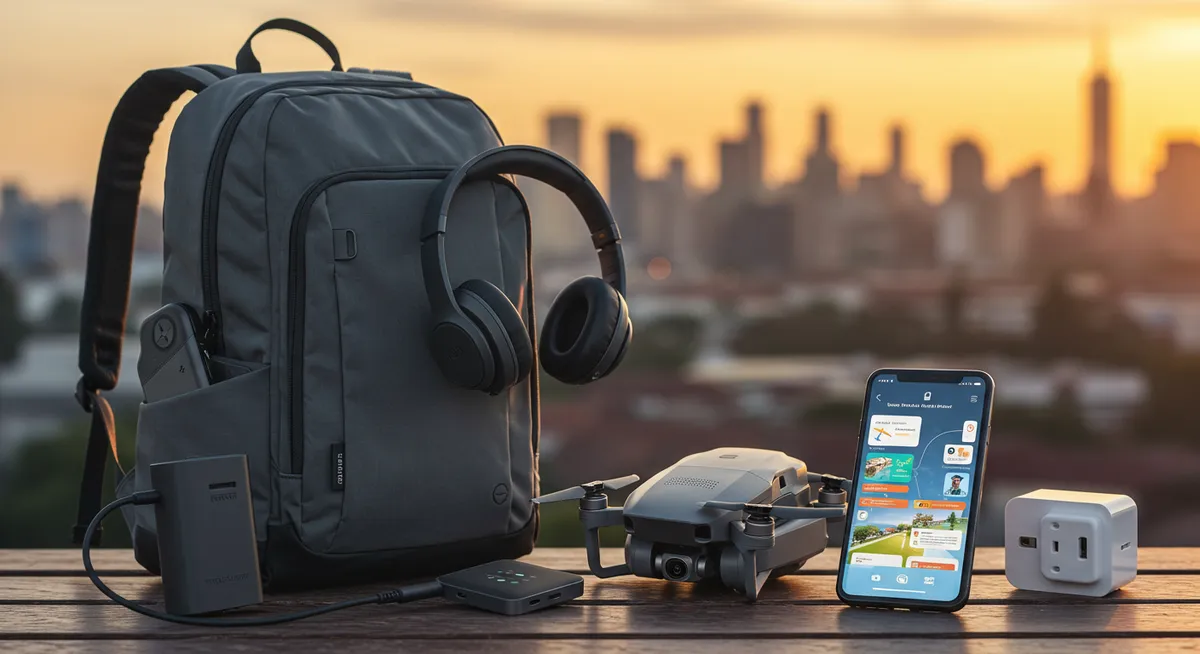
10 Tech and Connectivity Travel Hacks for Seamless Journeys
Stay connected and tech-savvy on your travels with these 10 essential tech and connectivity hacks that solve common travel challenges.
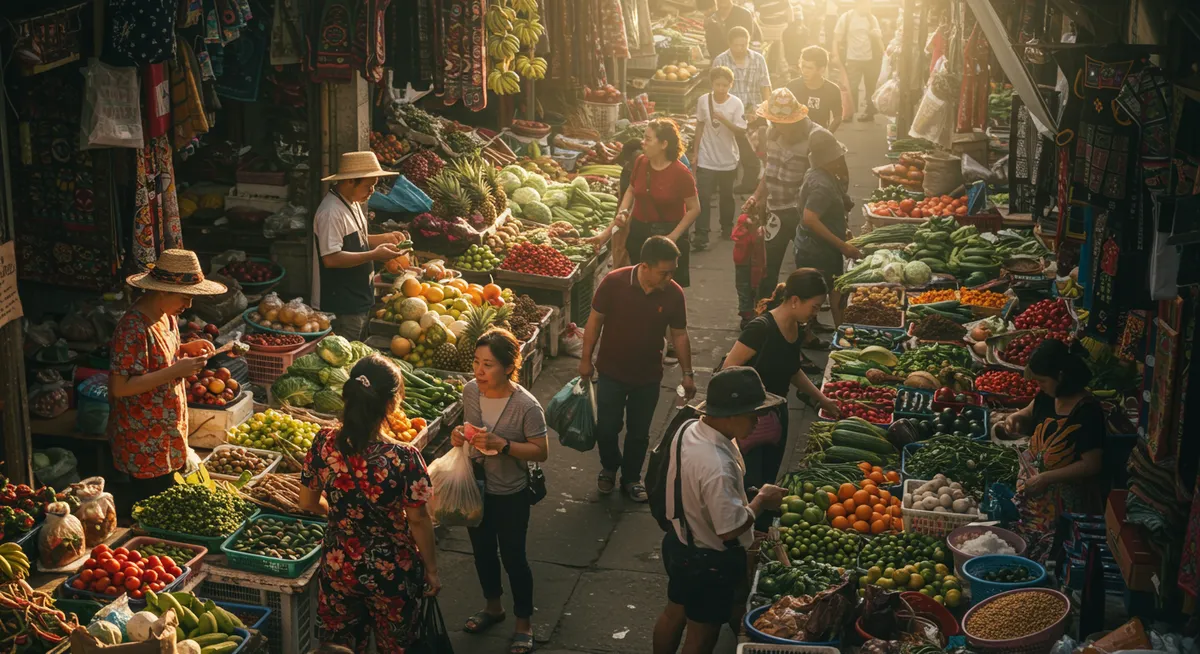
10 Money-Saving Travel Hacks for Budget-Friendly Adventures
Discover 10 proven money-saving travel hacks that help you experience more while spending less on flights, accommodations, food, and activities.

Hanoi to Halong Bay: Bus Distance & Time
Hanoi to Halong Bay distance by bus is typically 160-170 km. Discover common travel times, bus options, and essential tips for your journey to this stunning UNESCO site.